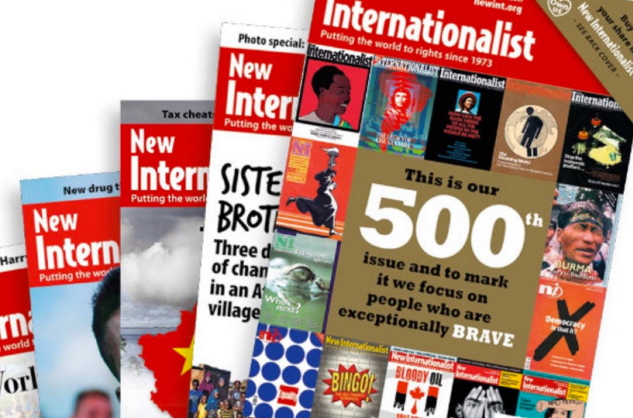When it comes to the devastating affects of pro-corporate deals, Obama was right the first time.
Published in the September 2013 issue of the New Internationalist.
Once upon a time, a candidate named Barack Obama characterized NAFTA, the North American Free Trade Agreement, as “a big mistake” with “devastating” consequences. Trying to woo the base of the Democratic Party, he positioned himself during the 2008 presidential primaries as a politician wary of the “free trade” model of corporate globalization.
Today, with campaign pledges long since tossed overboard, Obama’s administration is trying to extend NAFTA-style provisions across two oceans. It is pursuing both a 12-nation Trans-Pacific Partnership and a “Transatlantic Economic and Trade Pact” with Europe. If passed, the deals would become the most far-reaching agreements of their kind since the World Trade Organization (WTO) formed in the mid-1990s.
Perhaps sensing that we needed a reminder of how such benign-sounding treaties turn noxious, Wall Street and Big Oil have each generously provided illustrations. In past months, they have looked to trade law to dismantle protections for the environment and the public interest.
Wall Street’s aim is to roll back regulation. For those who believe that “too big to fail” banks should be broken up and that corporate criminals should actually be prosecuted, the checks on reckless speculation instated by Congress through a 2010 bill called the Dodd-Frank Act were mild at best. But the financial industry has only ramped up resistance since the law’s passage.
On May 23, Bloomberg News reported that “U.S. bankers and insurers are trying to use trade deals, which can trump existing legislation, to weaken parts of the Dodd-Frank Act designed to prevent a repeat of the 2008 financial crisis.” In particular, Wall Street is encouraging U.S. trade negotiators to insert into the transatlantic deal “rules limiting what regulators can do in the name of protecting financial stability.” In their ideal, this would involve scrapping cross-border controls on the kinds of risky financial derivatives that fueled the last meltdown.
An equally frightening case of feral trade law appeared just weeks before, when Canada threatened to use the WTO to protect its right to sell dirty oil. In early May, the European Union had proposed labeling tar sands oil as “highly polluting,” since its extraction produces greater carbon emissions than does conventional crude. The designation would discourage use of the fuel and help Europe meet its goals for greenhouse gas reduction.
Of course, oil executives have never cared much for global warming science. If Canada takes the case to the WTO and the body agrees that the label on tar sands oil is an unfair trade barrier, the EU would be forced to cave on its environmental standards.
Politically speaking, treaties that produce such outcomes are probably best kept hidden, at least if you want them enacted. Accordingly, the White House has been especially careful to keep the Trans-Pacific Partnership (TPP) in the shadows. While the administration likes to portray itself as a fan of open government, it has refused to allow members of Congress to see drafts of the TPP agreement—much less to make the text available for public scrutiny.
Their fear is that a transparent TPP would follow the fate of the Free Trade Area of the Americas. That agreement was an effort to expand NAFTA from Canada to Argentina, and it was considered at the turn of the millennium to be a political inevitability. Mass protests in Quebec City, Miami, and Mar del Plata helped change that—as did a historic wave of elections in Latin America which ousted regimes loyal to the Washington Consensus and replaced them with leaders not inclined to put “structural adjustment” on their national wish lists.
Seeing drafts of new trade agreements that enhance corporate power could move people to similarly rash displays of democracy. And those moved to take action would stand on strong ground: When it comes to the devastating affects of “free” trade, Obama was right the first time.
